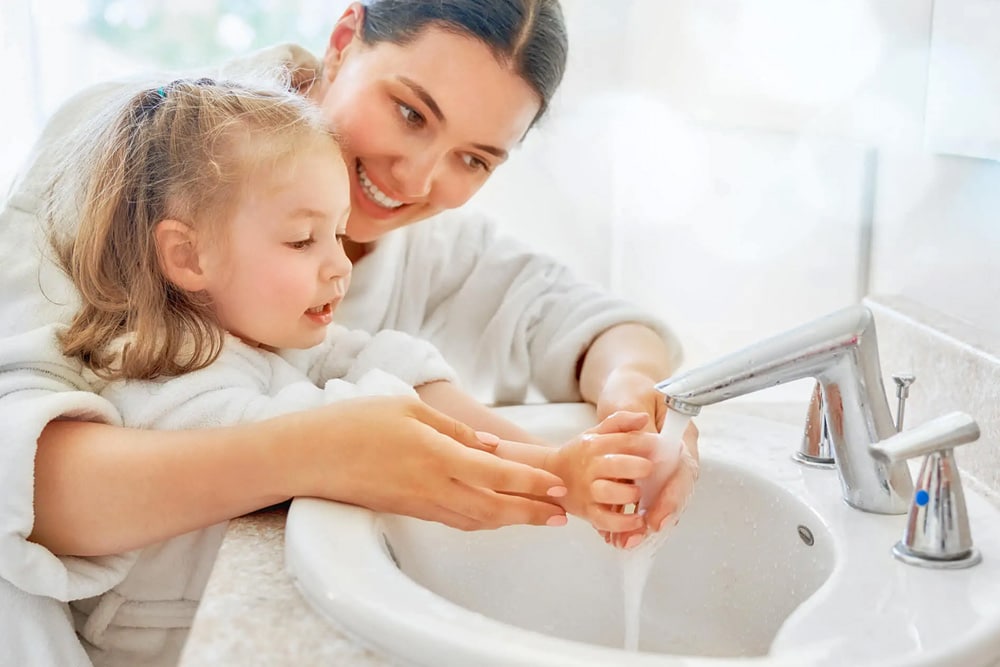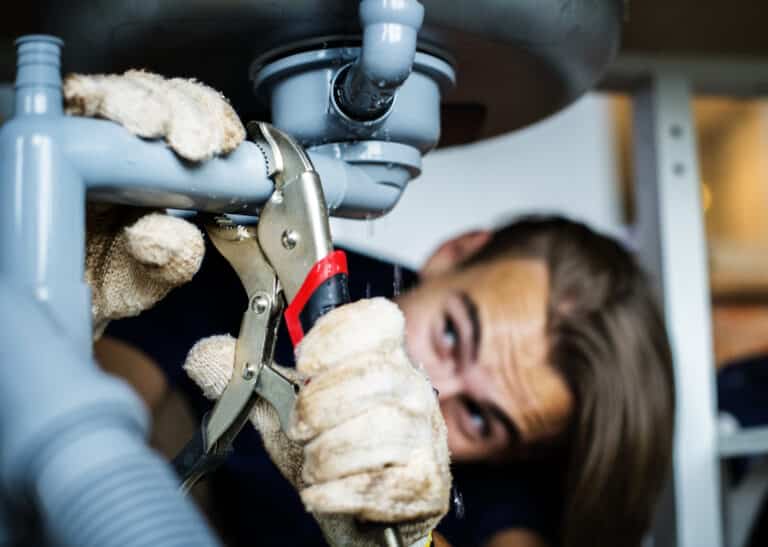Access to clean, safe drinking water is a fundamental necessity for maintaining good health and overall well-being. However, the quality of tap water can vary significantly depending on your location, the age of your plumbing system, and the water source.
Installing a water filtration system in your home can be a great investment, offering a host of benefits that extend beyond just improving the taste of your water.
Below, we’ll explore five major benefits of installing a water filtration system in your home, detailing how it can enhance your health, protect your appliances, save you money, and contribute to environmental sustainability.
1. Improved Water Quality and Taste
One of the most immediate and noticeable benefits of installing a water filtration system is the significant improvement in the quality and taste of your water. Municipal water supplies often contain chlorine, sediments, and various minerals that can impart a chemical or metallic taste. Additionally, unfiltered water may contain contaminants such as pesticides, herbicides, and heavy metals like lead or mercury, depending on the water source.
Water filtration systems are designed to remove these impurities, providing clean and crisp water that tastes better. For instance, activated carbon filters effectively absorb chlorine and organic compounds, eliminating the unpleasant odor and taste associated with treated water. This makes the water more palatable for drinking and cooking, which can encourage increased water consumption—a crucial factor in maintaining proper hydration and health.
Moreover, filtered water enhances the flavors of beverages like coffee, tea, and homemade soups. By removing impurities, the filtration system allows the natural flavors of your ingredients to shine, improving your culinary experience.
2. Enhanced Health and Safety
Contaminated water can pose serious health risks. According to the Environmental Protection Agency (EPA), waterborne contaminants such as bacteria, viruses, and chemical pollutants can lead to various illnesses, ranging from gastrointestinal issues to long-term chronic conditions like cancer and kidney damage.
Installing a water filtration system provides a crucial line of defense against these harmful substances. Advanced filtration systems, such as reverse osmosis, can eliminate up to 99% of contaminants, including:
- Microbial pathogens: Bacteria like E. coli and viruses that can cause severe gastrointestinal diseases.
- Heavy metals: Lead, arsenic, and mercury, which are toxic even at low levels.
- Chemical pollutants: Pesticides, herbicides, and industrial chemicals that can seep into groundwater.
- Pharmaceutical residues: Trace amounts of medications that may find their way into the water supply.
By ensuring your household has access to safe, contaminant-free water, a filtration system can significantly reduce the risk of waterborne diseases and support overall health, particularly for vulnerable groups such as young children, the elderly, and individuals with compromised immune systems.
3. Cost Savings Over Time
Many households rely on bottled water as a quick solution to concerns about tap water quality. However, the cost of purchasing bottled water can quickly add up, making it an expensive and unsustainable habit over time. In contrast, investing in a water filtration system is a cost-effective alternative that provides unlimited access to clean water at a fraction of the cost.
The initial cost of installing a filtration system may seem significant, but it pays for itself through long-term savings. Consider the following:
- Reduced reliance on bottled water: A filtration system eliminates the need to buy bottled water, which can save a typical household hundreds of dollars annually.
- Lower maintenance costs for appliances: Hard water, which contains high levels of calcium and magnesium, can cause scale buildup in appliances like dishwashers, washing machines, and water heaters. A water filtration system that includes a water softener can prevent this, extending the lifespan of your appliances and reducing repair and replacement costs.
- Improved plumbing longevity: Filtering out sediments and corrosive elements helps protect your home’s plumbing system, preventing clogs and corrosion that can lead to costly repairs.
4. Environmental Benefits
The environmental impact of bottled water is substantial, contributing to plastic pollution and resource depletion. According to the International Bottled Water Association, millions of plastic bottles are used and discarded daily, with a significant portion ending up in landfills or oceans. Additionally, the production and transportation of bottled water require large amounts of energy and resources, further increasing its carbon footprint.
By installing a water filtration system, you can significantly reduce your household’s reliance on single-use plastic bottles, thereby contributing to environmental sustainability. Here’s how:
- Reduction in plastic waste: With access to clean, filtered water at home, you’ll produce less plastic waste, helping to combat pollution and protect marine ecosystems.
- Lower carbon footprint: Filtration systems minimize the environmental costs associated with the production, packaging, and transportation of bottled water.
- Promoting sustainability: Many filtration systems have long-lasting components, such as reusable filters or cartridges, which generate less waste compared to continuously purchasing disposable water bottles.
This eco-friendly choice not only benefits the planet but also aligns with a growing movement towards sustainable living, enabling you to make a positive impact on the environment.
5. Convenience and Accessibility
Having a water filtration system in your home offers unparalleled convenience and accessibility. No more lugging heavy cases of bottled water from the store or worrying about running out of clean drinking water during emergencies. With a filtration system, you have an on-demand supply of filtered water directly from your tap, whenever you need it.
The convenience extends beyond drinking water to other household uses, including:
- Cooking and food preparation: Filtered water ensures that the food you prepare is free from contaminants, enhancing both flavor and safety.
- Bathing and skincare: Chlorine and other chemicals in unfiltered water can dry out your skin and hair. Using filtered water can help maintain healthier skin and reduce irritation, especially for individuals with sensitive skin or conditions like eczema.
- Pet care: Pets are also susceptible to the harmful effects of waterborne contaminants. Providing them with filtered water helps ensure their health and well-being.
Furthermore, modern water filtration systems come in various types, from under-sink units and whole-house systems to portable countertop filters. This variety allows homeowners to choose a solution that best fits their needs and budget, ensuring clean water is always within reach.
Conclusion: Installing a Water FIltration System
Installing a water filtration system in your home is an investment that offers a wide range of benefits, from improving the taste and quality of your water to enhancing your health, saving money, protecting the environment, and providing unmatched convenience. Whether you’re looking to safeguard your family’s health or reduce your ecological footprint, a water filtration system is a practical and cost-effective solution. With clean, safe water available at your fingertips, you can enjoy peace of mind knowing that your household is well-equipped to meet its hydration and daily water needs.





